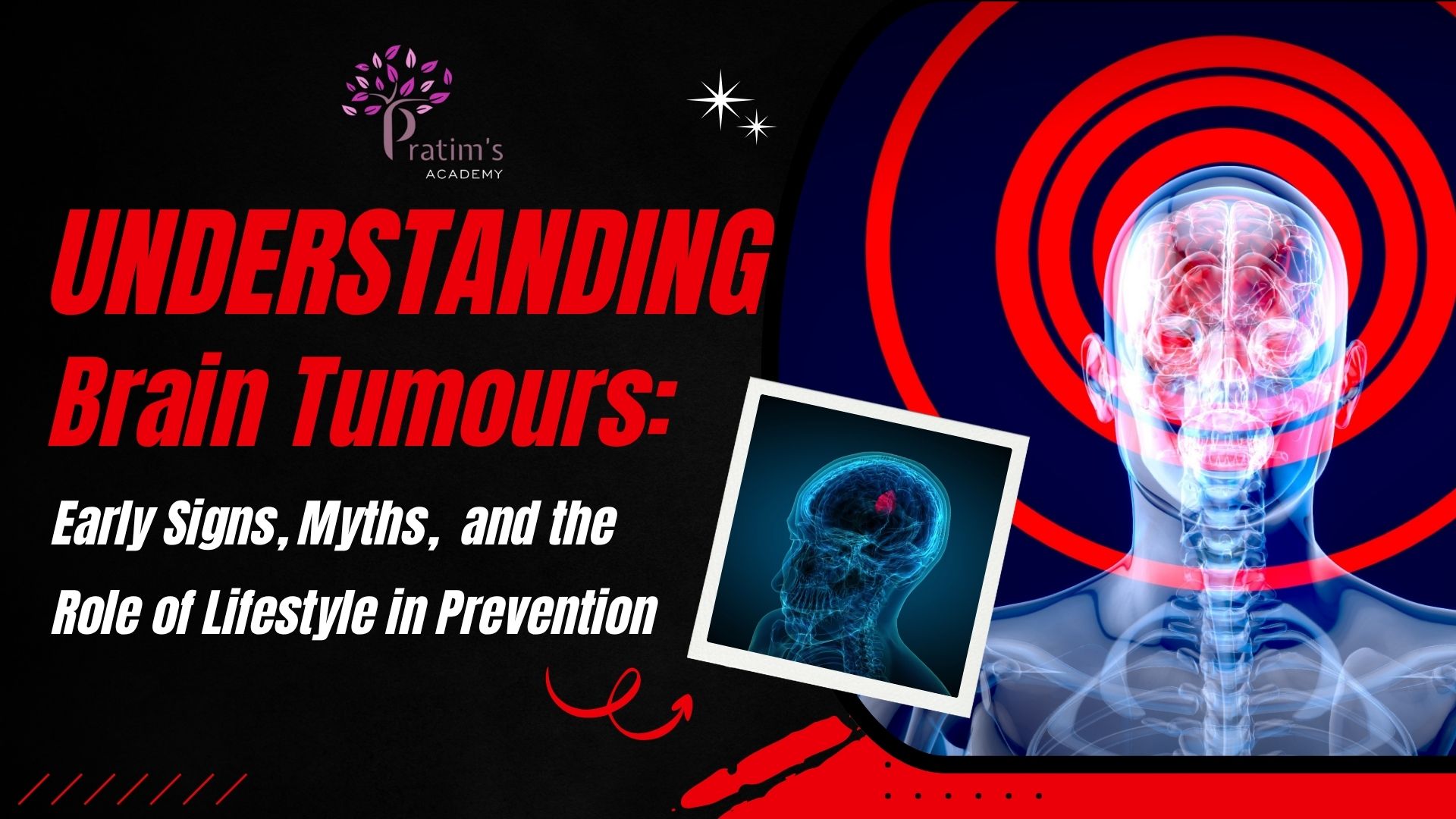
A brain tumour diagnosis often stirs fear, confusion, and numerous questions. But beyond the medical jargon lies a simpler truth: early detection, awareness, and healthy lifestyle choices can significantly impact the journey. This blog aims to demystify brain tumours, address common myths, explain the signs to watch out for, and highlight how lifestyle—including kidney health—can influence prevention and support.

A brain tumour is an abnormal growth of cells within or around the brain. Tumours can be benign (non-cancerous) or malignant (cancerous). Depending on their size and location, they can affect brain function, nerve control, and overall health.
According to the World Health Organization (WHO, 2021), brain tumours account for approximately 2% of all cancers but can cause significant neurological disabilities depending on their grade and site.
Recognizing symptoms early can lead to quicker intervention and better outcomes. Key warning signs include:

A report in The Lancet Neurology (Jones et al., 2019) emphasizes that delayed recognition of these symptoms often leads to late-stage diagnoses, reducing treatment effectiveness.
Kidney Connection: Certain rare genetic disorders affecting both kidneys and the brain (e.g., Tuberous Sclerosis Complex) can lead to benign tumours in both organs. Regular screening for those with a family history is essential.

Fact: Many brain tumours are benign and can be treated successfully.
Fact: Current research, including a large-scale study by the National Cancer Institute (NCI, 2020), found no consistent evidence linking mobile phone use with increased brain tumour risk.
Fact: Brain tumours can occur at any age, including in children.
While not all tumours can be prevented, lifestyle plays a significant role in reducing overall cancer risks.

✅ Diet
A diet rich in antioxidants, omega-3 fatty acids, and plant-based foods can reduce inflammation and oxidative stress, both linked to cancer progression.
According to Frontiers in Oncology (Sharma et al., 2021), diets high in flavonoids (found in berries, tea, dark chocolate) may offer neuroprotective benefits.
🚶♀️ Physical Activity
Regular exercise improves blood flow, reduces inflammation, and enhances immune function. At least 150 minutes of moderate activity per week is recommended.
😌 Stress Management
Chronic stress affects hormone levels and may contribute to systemic inflammation. Practices like yoga, meditation, and deep breathing help lower stress and support brain resilience.
A study in Psychosomatic Medicine (Creswell et al., 2016) showed that mindfulness practices improve attention and reduce stress hormone levels.
🧬 Genetics and Screening
Family history increases the risk of certain brain tumours. Genetic syndromes like Li-Fraumeni or Neurofibromatosis can be linked to tumour development. If there’s a family history, consult a genetic counsellor for possible testing and early screening.
Understanding brain tumours is the first step toward removing fear and misinformation. Early recognition of symptoms, a healthy lifestyle, and regular check-ups—especially for those with kidney disease or genetic predispositions—can offer a proactive path forward. While not every tumour can be prevented, awareness, nutrition, and self-care are powerful tools in staying ahead.